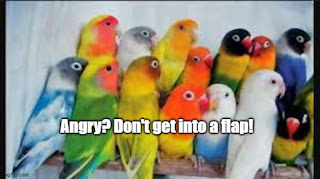The first baraita in Perek 6 of Avot offers an unbeatable array of inducements for anyone who makes the effort to study Torah seriously. It opens:
רַבִּי מֵאִיר אוֹמֵר:
כָּל הָעוֹסֵק בַּתּוֹרָה לִשְׁמָהּ זוֹכֶה לִדְבָרִים הַרְבֵּה, וְלֹא עוֹד,
אֶלָּא שֶׁכָּל הָעוֹלָם כֻּלּוֹ כְּדַאי הוּא לוֹ.
Rabbi Meir would say: “Whoever studies Torah lishmah (=for
Torah's sake alone) merits many things; not only that, but the entire world is
worthwhile for him”.
The baraita
continues by listing nearly 30 wonderful bonuses for the Torah scholar. Wealthy,
powerful and successful, he will be loved by God and man. Kings and counsellors
will share their secrets with him and seek his guidance. The only catch is that,
to qualify for all of this, one must first learn Torah lishmah.
In picking
up this theme of learning with a pure motive, the baraita echoes earlier
mishnayot that warn against learning Torah for improper motives. Thus one who
exploits Torah knowledge for his own glory will “fade away” (Avot 1:13) and
will “remove his life from the world” (Avot 4:7).
So what does learning lishmah entail? Early commentators like the Bartenura and the commentary ascribed to Rashi had no doubt. To them it meant not learning Torah in order to gain kavod (“so that people will call me rabbi”) or to make a living from it. Rambam was adamant, both in his commentary on the Mishnah and in his Mishneh Torah, stating that no one should live off the charity of others in order to learn Torah. While it was possible to earn a stipend for learning Torah, the reason for studying it should still be purely lishmah.
When Jewish
life was predominantly conducted in tightly-knit communities and ghettos,
learning Torah in order to benefit from it must have been peculiarly tempting
since communal rabbis and teachers could enjoy a “clean” living rather than toiling
as manual labourers. In many parts of Europe entry into the professions was
impossible or tightly restricted, so that teaching and learning Torah at a high
level was for most males the fast track to gaining respect and the prospect of
a good marriage.
It is
generally accepted that, in our generation, there is more Torah learning than
has ever been before. An unprecedented number of kolelim, yeshivot
and formal Jewish learning at every level is heavily supplemented by informal learning
through study groups and chavrutot. Talmudic study has received a huge boost
through the massive and increasing popularity of daf yomi programmes.
For those who choose to learn by themselves, there has been an explosion of new
book titles and annotated reprints of classics, both in their original language
and in translation, not to mention the constant spread of shiurim and divrei
Torah across the social media. But how much of this learning is lishmah?
Social and
economic changes in the wider world have made their impact felt on Jewish life
at all levels, Torah study included. As the standard of living has risen,
material expectations rise too. Many people now work longer and harder to pay
for essentials like rent, food and schooling than did their forebears; women
have increasingly shifted from home-makers to bread-winners, something that
would have been regarded as quite unusual a century ago. And both time and
effort available for Torah study inevitably contract since for many people it
is the activity that can most easily be trimmed without its diminution being
immediately felt.
It's good
to know that it is still possible to learn lishmah, without distractions
and competing priorities, for at least some of those who wish to do so—even though
for many of us this is a remote and unusual ideal. It would also be good to
receive some contemporary opinions as to what today constitutes learning lishmah.
How widely
can lishmah be construed? I have in mind the case of a friend I used to
learn with back in the 1990s. A ba’al teshuvah in his middle age, he and
his family eagerly embraced Jewish law and lifestyles. He could however
scarcely read Hebrew and certainly could not translate it. With a busy business
to run and many family demands to bear, he found it next to impossible to
acquire the learning skills which his children picked up almost instantly. His
sole commitment was to attending a daf yomi shiur which, he freely confessed,
he did not understand at all; yet he kept on going. I asked him why, given that
he had so little idea what the shiurim were about, he persisted. His
answer: “If I didn’t go to daf yomi every day, I’m sure I would be doing
something worse”. Lishmah?
For comments and discussion of this post on Facebook, click here.












